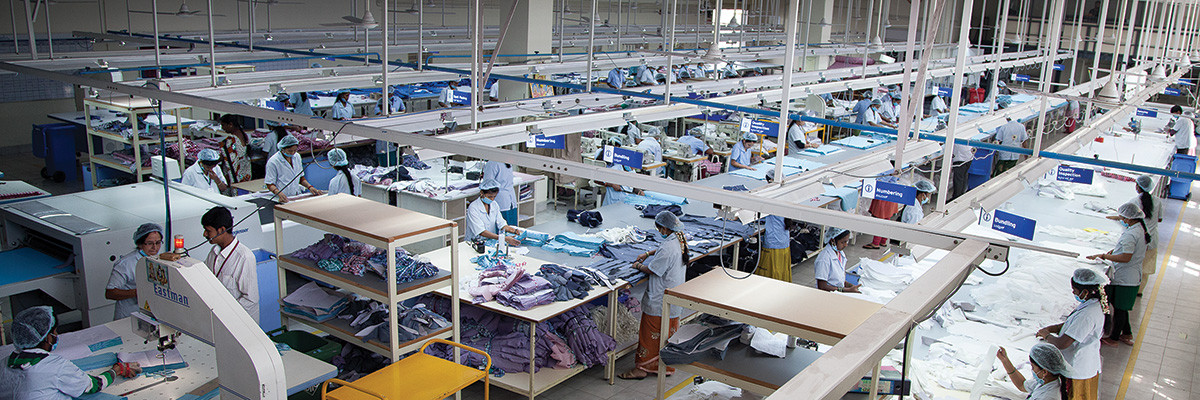
Authors
-
Racheal Meiers
Former Director, BSR
Racheal Meiers, Director, HERproject, BSR
These days, it’s easy to despair at the state of the world. Progress on global health, women’s empowerment, and factory working conditions have come up against headlines about the West African Ebola outbreak, kidnapping and harassment of girls trying to go to school, and the lack of meaningful progress in the garment sector in Bangladesh since Rana Plaza collapsed more than a year ago.
And it’s not only when I travel to other parts of the world that I am disappointed by inequality, injustice, and health crises. In fact, by some measures, where I live is more unequal than much of the so-called “developing world”—the city of San Francisco now has a higher inequality ratio than the country of Rwanda.
Today’s issues can be defined in three main ways: the disappearance of the middle class in mature markets; ongoing and extreme poverty in developing markets; and a lack of adequate education, training, and compensation for workers. These issues stagnate growth, increase vulnerability to economic shocks, and inflate human capital inefficiencies, such as employee productivity. That’s obviously bad for business, and corporate leaders know this.
Given the scale and complexity of the challenges, how can we evolve corporate sustainability to more effectively respond, and to proactively promote an inclusive global economy?
Earlier this year, we set out to explore this question with a new strategy, Business Leadership for an Inclusive Economy. We’ve also created a dedicated track on the topic at the BSR Conference 2014, where we’ll explore what an inclusive economy looks like and how the sustainability community can drive progress toward that objective. Some of the themes we’ll explore include:
- Any contributions a company can make to society require a foundational respect for human rights. Companies must make an effort to protect the rights of those directly and indirectly employed or otherwise affected by that company. The UN Guiding Principles on Business and Human Rights introduced a framework for compliance, but have they made a difference? A session with UN Global Compact, Human Rights Watch, and Barrick Gold will explore this question.
- Job creation is an essential pillar of an inclusive economy. But as the ILO’s Decent Work Agenda tells us, not all jobs are good jobs. We’ll hear ideas on how companies can ensure they are creating and sustaining good jobs in both mature and emerging markets in “Creating Good Jobs: The Path to Progress.”
- Engaged, prosperous communities help break the cycle of poverty and underpin business success. Companies have developed sophisticated community engagement strategies to drive socioeconomic development. A session on community investment will explore best practices, challenges, and innovations.
- Significant opportunities exist for business to contribute to the fight against poverty. The introduction of the new Sustainable Development Goals in 2015 will offer up a unique moment for partnership among business, government, and civil society. To contribute to this dialogue, we’ve organized an interactive session to explore potential roles for the business community, industry sectors, and individual companies to support poverty alleviation, access to health, gender equality, rule of law, and environmental sustainability.
- Our approach to corporate responsibility must evolve to respond to sustained and growing inequalities. Corporations coexist with society and depend on its stability, progress, and prosperity. Our session on this topic will explore evolving definitions of the responsibility of business to society, and what it means to pursue purpose-driven profit.
Inclusive economic growth and development offer remarkable benefits for business, as well as broader society. Businesses that craft and act upon a strategy to build an inclusive economy will contribute to market development, greater customer loyalty, access to talent and innovation, social and economic stability, increased productivity, and improved stakeholder relations.
The fundamental purpose of a company, whether a large corporation or a small business, is to create value. We’re hoping to work with our members to create more inclusive value, which will benefit both society and business. We look forward to continuing the conversation over the coming months, including in New York in November.
BSR’s latest sustainability insights and events straight to your inbox.
Let’s talk about how BSR can help you to transform your business and achieve your sustainability goals.